With the popularity of collagen and gelatin protein, often I get asked “Is Collagen a Good Source of Protein?” While I am a big fan of both, I think it’s important to note that it may not be the best option for a source of protein.
With the popularity of collagen in recent years, so too have I seen an increase of the use of collagen as a meal-replacing protein. While I am a big fan of collagen and personally aim to consume a high-quality grass-fed collagen protein in some form, nearly daily, myself, and I definitely recommend collagen to many of my nutrition clients for a variety of therapeutic and supplemental reasons – I wanted to take a moment to share why I don’t recommend that collagen be counted as part of your daily sources of protein or to used as a post-workout, rebuilding and recovering protein.
Why is a Complete Protein Important?
The human body is primarily made up of water, protein and fat. Second only to water, proteins comprise most of our tissues in the form of amino acids. And in all those amino acids, about half is collagen.
There are 22 standard amino acids. Of those 22, 9 are “essential,” meaning they are not made by the body and must be obtained through our diet. Another 6 are “conditionally essential,” meaning our bodies can make sufficient amounts without getting them directly from diet, but only when circumstances are optimal.
Our bodies NEED protein to sustain life. Protein is responsible for building every single cell in our body. The full panel of essential amino acids are necessary to help us build and repair every structure in our body. We build them up, break then down, over and over and over again. A great amount of dietary protein every day is necessary for this to be done efficiently and effectively.
Lean muscle is made entirely of complete protein as well, and is key for optimal well being. Lean muscle improves metabolism, helps burn body fat, regulates body temperature, as well as keeps you strong, healthy, and supported.
Muscle needs protein and getting adequate, quality protein (ideally from high-quality, properly raised, animal sources) supports strength, injury prevention and longevity. Protein also helps with a higher metabolic rate, greater insulin sensitivity, and building that lean, sculpted, sexy physique, you babe, you. Protein is also responsible for satiety and reducing cravings and hunger.
A complete protein is comprised of, at the very least, the 9 essential amino acids. These are referred to as ‘essential’ because you MUST obtain them from your diet; the body cannot synthesize them on its own. Complete proteins can be found in a wide variety of animal foods and a few plant foods.
Is Collagen a Good Source of Protein?
Collagen Protein is Incredible. But it is NOT Complete.
Collagen, however, is a unique type of protein. It is not complete, meaning, it does not have all 9 essential amino acids that a complete protein requires. Collagen is however made up of some of these very specific conditionally essential amino acids that are often lacking in our modern diets. The amino acids primarily responsible for forming collagen are glycine, proline, alanine and hydroxyproline. These are all great for supporting the body in recover and healing but without the full essential amino acid profile (and the necessary branch chain amino acids), we are going to be missing out on some important players here, especially when we are talking about rebuilding and repairing muscle. And while collagen does contain 8 of the 9 essential amino acids, and to some it may seem “good enough”, it’s really important to note, these amino acids aren’t equally balanced, as the ratio is definitely skewed towards glycine, proline, and hydroxyproline being most abundant.
Of course, as with most things, I recommend that it’s always best to meet nutrient needs from whole foods sources, whenever possible and I am working on a full, robust post in regards to protein, daily recommended amounts suggested, along with supplementation by way of protein powders, what to look for, etc – but I just wanted to take a moment to debunk this idea that collagen is a full and complete, meal-replacing source of protein, especially post-workout.
So Then, What is Collagen Good For?
I recommend collagen, to be taken as a supplement. Daily, if you’d like. Collagen, as we’ve talked about before here on TY, is the most abundant protein in our body and it’s responsible for acting as the “glue” that helps to hold things together. Our gut barrier, connective tissues, joints, bones, skin, cartilage, nails, hair, these all rely on ample amounts of protein to be strong, flexible and healthy. This means collagen can be great for is supporting connective tissues and improving joint pain after exercise, but it isn’t going to help repair and rebuild the way a complete protein does.
Collagen plays a very important role in the healthy of our gut, joints, skin, hair and nails. Plus, it supports weight management and bone health, protects your heart, and optimizes liver function. As we age this is especially important, with the production of collagen rapidly declining after the age of 40, this can cause an increase in wrinkles, weaker joints and bones, thinning hair, and other effects to our health and vitality.
Most folks cannot get enough collagen from their diet alone. Even those of us eating a clean, healthy, paleo-inspired, ancestral-focused diet have trouble getting as much collagen as our ancestors once did, let alone enough for optimal health. I would say that unless you have a serving or two of high-quality, homemade bone broth made with grass-fed bones, every single day, chances are you are lacking in dietary collagen.
So sip away on your boosted coffees, and enjoy other collagen infused foods, but best not to count on it as your main protein source, especially after a hard sweat. Always choose a high-quality grass-fed collagen powder. There are many on the market now. I personally prefer Vital Proteins. Other brands that I trust are Perfect Keto (this also contains MCT oil) and Great Lakes.
What Complete Protein Powders Do I Recommend?
Often people reach for protein powders as a convenient means to get adequate protein-on-the-go, or as a simple post-workout meal when our body is still in sympathetic-nervous-system dominance mode (aka fight or flight mode). As we know from previous posts talking about digestion, our nervous system needs to be in rest and digest mode, aka parasympathetic dominance, for the digestive process to work correctly. If we are still riding those post-workout vibes and are feeling jazzed up, likely our stomach won’t produce adequate stomach acid, necessary to breaking down harder to digest protein and we will still have higher levels of cortisol present. So, a big juicy steak or a large chicken breast, while you are still revved up from working out, this may not be ideal. If allowing your body to switch over to parasympathetic dominance isn’t possible or simply a shake / smoothie is just what sounds best to you, here are some quality, complete protein powders I would suggest to properly build muscle and recover.
High-Quality Complete Protein Powders I recommend:
Equip Foods Grass-fed Beef Isolate Protein (use that link and coupon code “TASTYYUMMIES“ to save 15%)
PaleoPro Paleo Protein Powder – Grass-fed Beef Isolate, Whole Eggs and Egg Whites (I love that they have a plain unsweetened, unflavored version)
If you can tolerate whey Vital Proteins Whey Collagen Protein is also a great option
For complete plant based proteins I suggest Equip Foods Prime Plants, Garden of Life and Thorne’s VegaLite.
Many protein supplements on the market are processed with chemicals and solvents and are made with ingredients that can upset the digestive tract. I suggest avoiding protein powders created from soybeans or animal proteins from conventionally-raised animals given hormones, antibiotics and fed GMO feed. A high-quality whey protein can work for people that tolerate dairy, but often whey can be highly inflammatory to the gut. Look for grass-fed, grass-finished animal protein from animals that weren’t given hormones, or antibiotics. If you are opting for plant based, it is best to avoid corn and soy at the very least, but many plant based protein blends do contact grains and legumes which for many people can be irritating / inflammatory. Avoid sugar or artificial sweeteners, additives, preservatives, colors, dyes and other toxic ingredients.
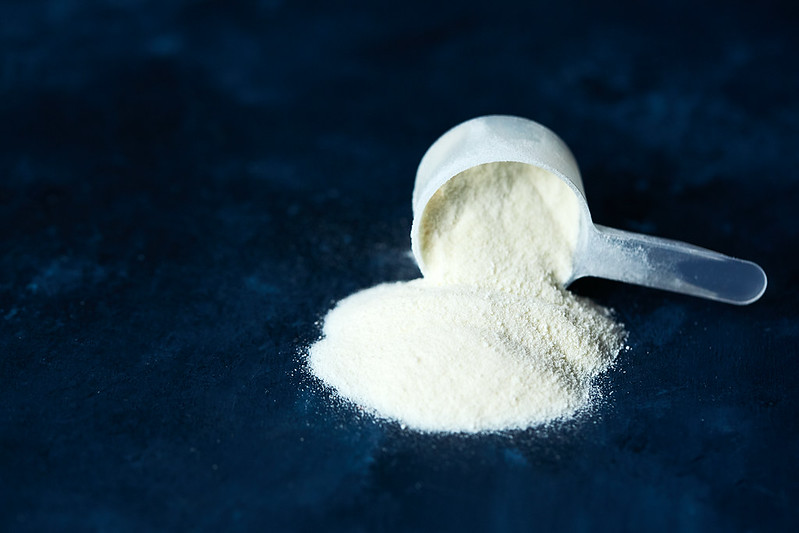
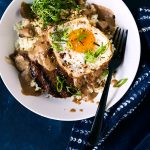
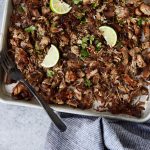
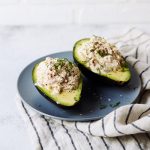
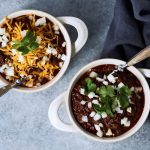


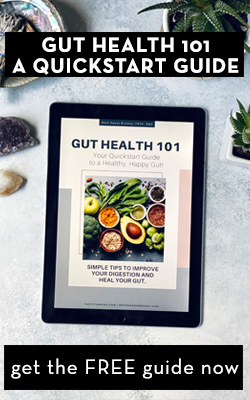
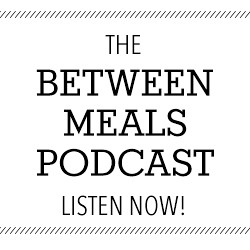

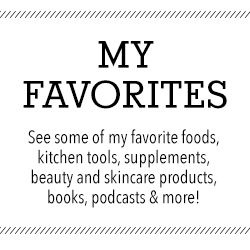

One Response
I just started using Great Lakes collagen, I am 49. I don’t know if it is mental or not but my joints hurt less. I had the sleeve surgery 2 years ago and feel like every joint is on fire. It is hard to get in 85g of protein when you have a small stomach. Now I know not to count this in my protein count.